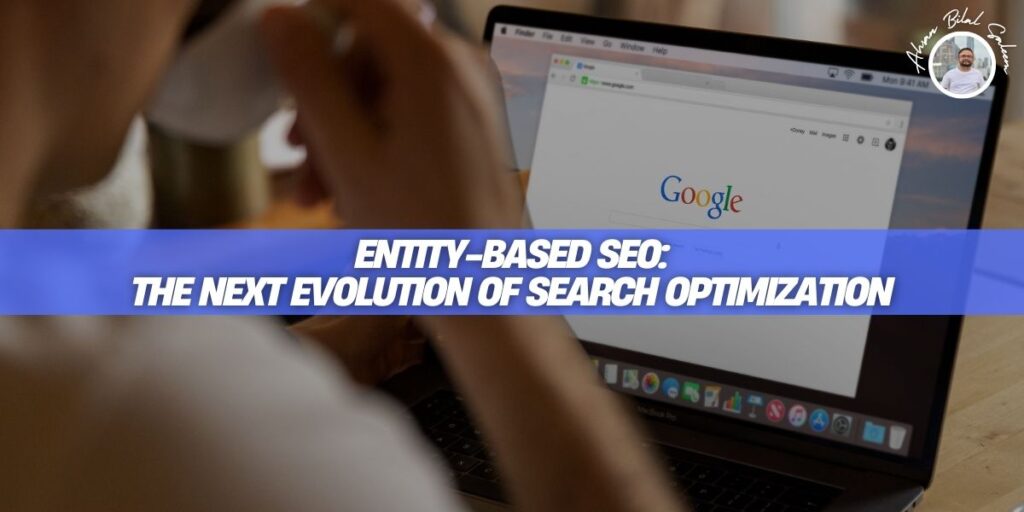Introduction to Entity-Based SEO
Over the years, search engine optimization (SEO) has developed significantly. From simple keyword stuffing to sophisticated AI-driven algorithms, search engines have become more intelligent in understanding content. One of the most significant advancements in recent years is entity-based SEO—a strategy that goes beyond traditional keyword optimization and focuses on entities, relationships, and context. This shift is crucial because search engines like Google now prioritize meaning over mere keyword density, making entity-based SEO the future of search optimization.
What is an Entity in SEO?
In the context of SEO, an entity refers to a distinct and well-defined thing, which can be a person, place, object, brand, or concept. Unlike traditional keyword-based SEO, where search engines rely heavily on words, entity-based SEO focuses on understanding the meaning behind words and how they relate to each other.
For example, if you search for “Apple,” search engines must determine whether you are looking for information about the fruit or the technology company. Through entity-based SEO, Google identifies relevant connections and delivers more precise search results.
How Entity-Based SEO Works
Entity-based SEO works by leveraging structured data, knowledge graphs, and natural language processing (NLP) to create a deeper understanding of search queries. Here’s how it functions:
- Identifying Entities: Search engines recognize and categorize entities within the content. These entities are stored in databases like Google’s Knowledge Graph.
- Understanding Relationships: Google determines the relationship between different entities, allowing it to provide contextually accurate results.
- Improving Search Relevance: By focusing on entities rather than just keywords, Google enhances the accuracy of search results, ensuring users get precisely what they are looking for.
Why Entity-Based SEO is Important
Entity-based SEO offers several advantages over traditional keyword-based strategies:
- Improved Search Accuracy: Since Google understands the context behind entities, users receive more relevant search results.
- Better Voice Search Optimization: With the rise of voice assistants like Siri and Alexa, entity-based SEO helps search engines understand conversational queries better.
- Stronger Brand Presence: Entities allow Google to recognize and establish brand authority, leading to higher visibility.
- More Reliable Featured Snippets: By structuring content around entities, websites are more likely to appear in featured snippets, increasing organic traffic.
The Role of Google’s Knowledge Graph
Google’s Knowledge Graph is a massive database that stores information about entities and their relationships. When users search for something, the Knowledge Graph helps Google connect the dots between entities and display the most relevant information.
For instance, if you search for “Elon Musk,” the Knowledge Graph provides details like his birthdate, companies, and related searches. This is because Google understands him as an entity rather than just a collection of keywords.
To optimize for the Knowledge Graph, businesses should:
- Create detailed and structured content that defines their brand as an entity.
- Utilize schema markup to provide search engines with structured data.
- Get listed on Wikipedia and Wikidata, as Google often pulls information from these sources.
How to Optimize for Entity-Based SEO
Implementing entity-based SEO requires a strategic approach. Here are key techniques to enhance your website’s visibility:
1. Use Structured Data Markup
Structured data markup (Schema.org) helps search engines understand the content better. By implementing schema markup, businesses can enhance their visibility in search results, especially in rich snippets and knowledge panels.
2. Build a Strong Internal Linking Strategy
Entities are interconnected, and your website should reflect this through strong internal linking. Connecting relevant pages helps search engines establish relationships between different topics and improves crawlability.
3. Focus on Semantic SEO
Instead of just targeting keywords, businesses should focus on semantic SEO, which means optimizing content for meaning rather than just words. Use synonyms, related terms, and contextually rich content to improve relevance.
4. Leverage High-Authority Sources
Google pulls data from high-authority sources like Wikipedia, Wikidata, and official brand websites. Getting your business mentioned or cited on these platforms helps establish entity recognition.
5. Optimize for Brand Entities
Brand recognition plays a crucial role in entity-based SEO. Companies should:
- Ensure consistency in business name, address, and contact details across all online platforms.
- Actively engage in content marketing and PR campaigns to boost brand mentions.
- Secure a Google Knowledge Panel by optimizing Google My Business and other online profiles.
Entity-Based SEO and Voice Search
With the rapid adoption of voice search, entity-based SEO is becoming even more essential. Voice assistants rely on entity recognition to provide accurate responses to user queries. Optimizing for entity-based SEO ensures that your content aligns with natural language processing (NLP), improving your chances of appearing in voice search results.
To enhance voice search optimization:
- Create conversational and question-based content.
- Use structured data to help search engines understand your content.
- Optimize for local SEO, as many voice searches are location-based.
The Future of Entity-Based SEO
As search engines continue to evolve, entity-based SEO will become the foundation of modern search optimization. Google’s AI algorithms, like BERT and MUM, are advancing to understand context better, making entity relationships even more critical. Businesses that adapt to this entity-first approach will gain a competitive edge in organic search.
In the future, we can expect:
- Greater emphasis on structured data and knowledge graphs.
- Enhanced AI-driven search algorithms that prioritize context over keywords.
- More sophisticated voice search capabilities powered by entity recognition.
Conclusion
Entity-based SEO is revolutionizing the way search engines understand and rank content. By focusing on entities, relationships, and context, businesses can improve their search visibility, enhance brand authority, and future-proof their SEO strategies. As search engines continue to evolve, adopting an entity-first approach will be essential for staying ahead in the competitive digital landscape. Now is the time to embrace entity-based SEO and optimize for the next generation of search.
